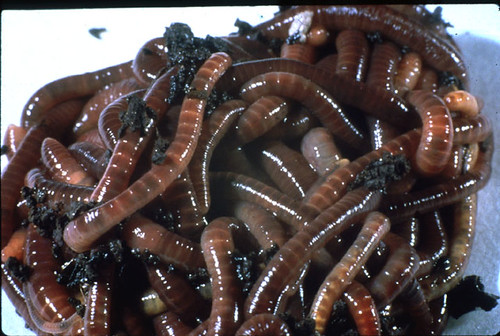
Earthworms can generate tons of nutrient rich droppings, or “casts,” per acre each year on agricultural lands and gardens. And they’re such industrious little diggers that they can literally turn over the entire top six inches of a field in as few as 10 years.
What if you could harness this incredible energy and productivity, and turn it into a commercial product that also helps the environment? That’s exactly what we were thinking when the National Institute of Food and Agriculture (NIFA) decided to fund a Small Business Innovation Research program for RT Solutions in Livingston, NY.
Today I had a chance to celebrate the commercial success that resulted from that grant, Worm Power – the 2010 Small Business Award winner for Livingston Co. Worm Power’s signature product – vermicompost, a soil additive that is part potting soil and part organic fertilizer – marries dry manure from nearby Coyne Dairy Farm with the digestive power of earthworms. The result – every four pounds of manure gives you a pound of vermicompost, sold mostly to commercial greenhouse nurseries. Not only is it a great growing medium, researchers at Cornell University also found something in the mix inhibits the growth of mold that kills young seedlings.
Worm Power’s worm farm is the largest in the United States and one of the largest in the world, and the reason I visited today was to attend the open house for the new and expanded facilities they’ve just opened up the road from their original location. It’s amazing to me to see how small businesses leverage very modest investments from USDA – in this case the original grant in 2005 was for only about $75,000 – to grow jobs, prosperity, and knowledge in rural America and beyond.
But that’s part of the power of science at USDA – we leverage basic research against the power of farmers and businessmen to spark commercial innovation. And when we get to see results as successful as this, it really is a cause for celebration.
